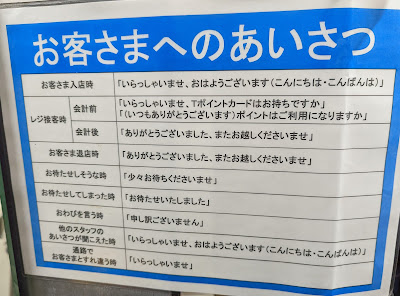Differences you may not know: いえいえ vs. いやいや
Let's say the conclusion first:
いえいえ:Be modest, accept or agree with what others say.
いやいや:Be polite and politely deny what the other person said.
Why should I write this article?
It is very short, but I must write it because it is crucial. I came to Japan 4 months later and found that いやいや originally means no; that is, if you use too much いやいや, it will bring bad feelings to others.
The Japanese may think, why do you permanently deny me?
Excessive modesty is not a good thing. Sometimes it is better to accept others' praise.
However, if he or she praises you for your good Japanese, it may not be accurate, so there is no problem using いやいや here. But if you do something worthy of thanks for others, you'd better use いえいえ when others want to thank you.


Comments
Post a Comment